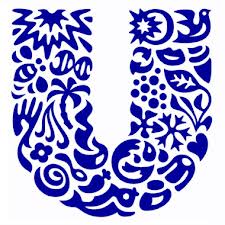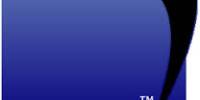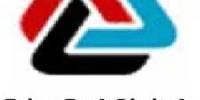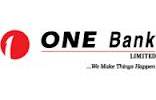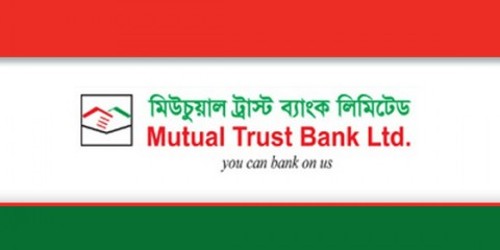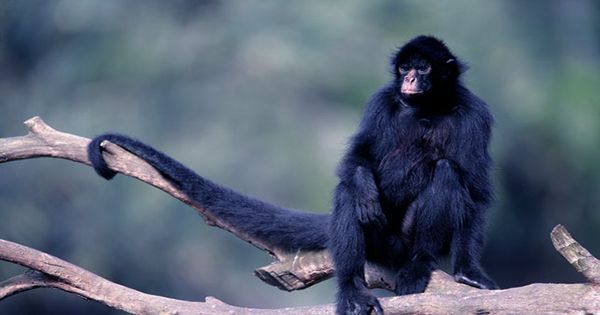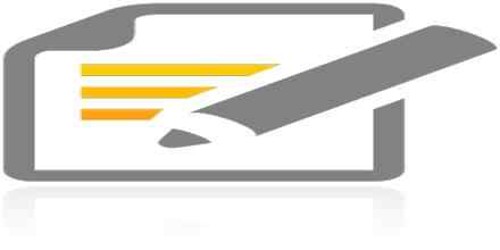Overview of Unilever PLC and Unilever Bangladesh Ltd:
Unilever Bangladesh Limited is a subsidiary of Unilever, world’s one of the largest Household and Personnel Care and Foods Manufacturer with an annul turnover of €39.6 billion or approximately 2,40,000 Crore Taka. Unilever Bangladesh Limited is the leading Household and Personnel Care producer in Bangladesh with 15 brands and numerous sub-brands. They have been here in this country for the last forty years and have a huge manufacturing facility in Kalurghat, Chittagong aside from six other third party production facilities.
Its offices are located in:
| Registered Office | Unilever Bangladesh Limited | |
| 51 Kalurghat Heavy Industrial Area | ||
| P. O. Box # 125 | ||
| Chittagong – 4000 | ||
| Bangladesh | ||
| Corporate Office | Unilever Bangladesh Limited | |
| ZN Tower | ||
| Plot No. 2, SW (1) | ||
| Road No. 8 | ||
| Gulshan – 1 | ||
| Dhaka – 1212 | ||
| Bangladesh |
Unilever PLC:
Unilever is a public limited company of Anglo-Dutch origin that owns many of the world’s consumer product brands in foods, beverages, home care and personal care products. Unilever is one of the world’s largest consumer goods companies with a turnover of nearly €40 billion and more than 200,000 employees. Unilever produces 400 brands across a range of food, home and personal care products and operates in around 100 countries, and the products are sold in about 50 more.
Unilever describes themselves as a ‘multi-local’ multinational, bringing international expertise to the service of people everywhere. They have consumers, employees, business partners and shareholders on every continent.
Unilever is made up of two parent companies: Unilever NV that is based in Rotterdam, Netherlands, and Unilever PLC in London, UK. Both these companies have the same directors and are in effect a single business. The current non-executive Chairman is Antony Burgmans while Patrick Cescau is Group Chief Executive.
Unilever’s major competitors include Procter & Gamble, Nestlé, Mars Incorporated, and Reckitt Benckiser to name but a few.
History:
The self-starter: William Hesketh Lever, the son of a shopkeeper, started selling ‘Sunlight’ soap to workers in the mills of Northern England in 1884 and founded Lever Brothers in 1885.
By 1911 Lever Brothers was producing a third of all UK’s soap. In 1917, he began to diversify into foods, ice cream, acquiring fish, and canned food businesses. Lever’s success was built by exercising power over his work force, heavy brand advertising and a supply of cheap raw materials. Lever bought out competing firms and by 1890 had set up soap factories in Australia, Canada, the US, Germany and Switzerland.
Merger mania: Margarine was first produced commercially in the Netherlands in the 1870s and by 1927 two early manufacturers, Jurgens and Van den Bergh, decided to merge their operations to form Margarine Unie. Attracted by the idea of having a prime market position in soap and margarine, Margarine Unie and Lever combined two years later. Furthermore, and more strategically important, both Lever Brothers and Margarine Unie were competing for the same raw materials, involved in large-scale marketing of household products and used similar distribution channels so a merger was a logical outcome and since 1930, the two companies have operated as one, linked by a series of agreements and shareholders that participate in the prosperity of the whole business.
The African conquest: In 1911 Lever obtained a right to use, within ten years, up to 750,000 hectares of palm-bearing land in Africa. He called his Congo base ‘Leverville’. Lever Brothers soon needed vast amounts of edible oil for their margarine manufacturing plants and also wanted to control their sources of supply so quickly took over the Niger Company and the African and Eastern Trade Corporation. These two ‘giants of Africa’ merged to form the United Africa Company (UAC) in 1929 and acted to forcibly keep prices paid to West African farmers down. These profits then helped UAC diversify into textiles, beer, engineering and more profitable trading activities.
Because of Fads, fancies and convenience: In 1922 Lever Brothers bought Macfisheries and the Wall’s meat company to extend their product range. In the summer when demand for Wall’s sausages was weak, the subsidiary began to make ice cream. With the end of WWII, the convenience foods market boomed and ice creams, frozen meals and oven-ready foods were developed. Now Unilever is developing other exotic products: out-of-season flowers and fruits. For example, Unilever grows carnations in Kenya that are airfreighted to markets in Europe, supplying customers all year round.
Nimble-fingers make fortunes: Unilever grows tea in Africa and is a major buyer at all tea auctions and is also the market leader in most consuming countries. Unilever has 95 per cent of packet tea sales in India and Pakistan. It is able to buy cheaply in the Third World where costs are low and has invested heavily in processing to make things such as ‘instant tea’ that add value when retailed.
- Worldwide turnover in 2006 was €39.6 billion
- Employed 247,000 people, with 90% of managers locally recruited and trained.
- Its Home and Personal Care and Foods products are sold in 150 countries.
- Almost 72% of Unilever’s sales are generated by its foods division brands.
- In many parts of the world Unilever leads the home care market with brands such as Brilhante, Comfort, Skip and Omo.
- Unilever’s top personal care brands include Lux, Ponds, Sunsilk, Rexona, Axe, and Dove
- Its other famous brands include Dove, Knorr, Lipton, Hellmann’s, Magnum, Omo and Cif.
- It spends about £3.5 billion a year on marketing its brands.
- Every day 150 million people choose Unilever brands to feed their families and to clean their homes.
- In 2006 Unilever spent over €1 billion on research and development – about 2.5% of its turnover.
- Unilever has 111 sites certified to the international environmental management standard ISO 14001.
Table 1: Historical Timeline
| 19th Century | Although Unilever was not formed until 1930, the companies that joined forces to create the business we know today were already well established before the start of the 20th century. |
| 1900s | Unilever’s founding companies produced products made of oils and fats, principally soap and margarine. At the beginning of the 20th century their expansion nearly outstrips the supply of raw materials. |
| 1910s | Tough economic conditions and the First World War make trading difficult for everyone, so many businesses form trade associations to protect their shared interests. |
| 1920s | With businesses expanding fast, companies set up negotiations intending to stop others producing the same types of products. But instead they agree to merge – and so, Unilever is created. |
| 1930s | Unilever’s first decade is no easy ride: it starts with the Great Depression and ends with the Second World War. But while the business rationalises operations, it also continues to diversify. |
| 1940s | Unilever’s operations around the world begin to fragment, but the business continues to expand further into the foods market and increase investment in research and development. |
| 1950s | Business booms as new technology and the European Economic Community lead to rising standards of living in the West, while new markets open up in emerging economies around the globe. |
| 1960s | As the world economy expands, so does Unilever and it sets about developing new products, entering new markets and running a highly ambitious acquisition programme. |
| 1970s | Hard economic conditions and high inflation make the ’70s a tough time for everyone, but things are particularly difficult in the Fast Moving Consumer Goods (FMCG) sector as the big retailers start to flex their muscles. |
| 1980s | Unilever is now one of the world’s biggest companies, but takes the decision to focus on its portfolio, and rationalise its businesses to focus on core products and brands. |
| 1990s | The business expands into Central and Eastern Europe and further sharpens its focus on fewer product categories, leading to the sale or withdrawal of two-thirds of its brands. |
| 21st Century | The decade starts with the launch of Path to Growth, a five-year strategic plan, and in 2004 further sharpens its focus on the needs of 21st century consumers with its Vitality mission. |
Unilever Bangladesh Limited (UBL): The year 1964 marked a new beginning for Kalurghat in Chittagong. It was in this year that Unilever Pakistan Ltd a subsidiary of Unilever, the Anglo Dutch Consumer goods Company, decided to establish a manufacturing unit in Kalurghat. Unilever started its quest to contribute to enhance the quality of human life, not confining its mission to produce quality branded products, but also providing opportunities of employment, developing ancillary industries, protecting the environment, and propagating community development through social contributions.
In 1964, Unilever started producing mechanized soaps, thus ushering industrialization in the area. Productions started off with Sunlight soap and Lifebuoy soap. Back in those days the average weekly capacity was 50 to 60 tons. After meeting the local demands, surplus was shipped to Pakistan. However, the political scenario was deteriorating and after a ravaging war in 1971, Bangladesh became an independent country. It was after independence that Unilever Bangladesh Ltd was constituted with Unilever owning 60.75% shares and the Government of Bangladesh owning the remaining 39.25% shares.
Post liberation period evidenced accelerated growth for the company. Demand started rising and the company continued its mission to meet consumer needs by producing quality soaps, introducing Lux – the beauty soap and Wheel. Launched in 1972 Wheel entered the mechanised laundry category, traditionally dominated by cottage soaps. It appealed to the consumers with unique care benefits for hand and fabric, a generic weakness in cottage soaps. It gradually became the secret ally of Bangladeshi women by extending the caring hand to ease her daily laundry chores.
The early eighties witnessed expansion of Unilever Bangladesh Ltd through diversification! Calibrating direction, the mission now included enhancing quality of life through other personal products aspiring aestheticism like sparkling white teeth, fresh breath, beautiful hair, and glowing skin. A Personal Product Plant was established to manufacture shampoo, toothpaste, and skin care creams.
In the early 90’s Unilever entered the tea-based beverage market introducing Lipton Taaza, Lever’s flagship packet tea brand, with the objective to be the most preferred tea of the Bangladeshi consumers.
The appetite to innovate and grow was insatiable. New products such as fabric washing powders were manufactured for the first time with formulations technically suitable for conditions in Bangladesh at an affordable price. Such washing powders led the country to witnessing a revolutionary change in washing habits moving from direct application to significantly convenient solution wash.
Product formulations were of international standard and by tapping into the vast know-how base of the parent Company – Unilever, Unilever was able to make the products available to the consumers at an affordable price. The growth of the company provided ample employment opportunities both direct and secondary with attendant fillip to the economy of the country.
Focused on meeting and responding to the needs of our consumers in Bangladesh, the journey to grow and the quest for excellence continue unabated!
Brief History of Brand Launches by Year:
Brands | Year of Launching |
| Lifebuoy | 1964 |
| Lux | 1964 |
| Wheel Laundry Soap | 1972 |
| Sunsilk | 1982 |
| Close Up | 1987 |
| Vim | 1987 |
| All Clear | 1989 |
| Fair & Lovely | 1988 |
| Ponds’ | 1991 |
| Pepsodent | 1991 |
| Taaza | 1992 |
| Surf Excel | 1993 |
| Wheel Washing Powder | 1997 |
| Rexona | 2002 |
| Vim Bar | 2003 |
| Pepsodent Tooth Powder | 2003 |
| Lakme | 2006 |
Table 2: Brief History of Brand Launches by Year
Unilever Bangladesh Limited at a Glance:
| Type of Business | Fast Moving Consumer Goods company with local manufacturing facilities, reporting to regional business groups for innovation and business results. |
| Operations | Home Care, Personal Care and Foods. |
| Constitution | Unilever – 60.75% shares, Government of Bangladesh – 39.25% |
| Product Categories | Household Care, Fabric Cleaning, Skin Cleansing, Skin Care, Oral Care, Hair Care, Personal Grooming, Tea based Beverages |
| Top Brands | Wheel, Lux, Lifebuoy, Fair & Lovely, Pond’s, Close Up, Sunsilk, Lipton Taaza |
| Manufacturing Facility | Unilever has a Soap Manufacturing factory and a Personal Products Factory located in Chittagong. Besides these, there is a tea packaging operation in Chittagong and five manufacturing units in Dhaka, which are exclusively dedicated to Unilever Bangladesh Limited. |
| Employees | Over 4000 people are provided direct employment through Unilever’s factories, distributors, and exclusive manufacturers. |
Table 3: Unilever Bangladesh Limited at a Glance
Unilever Bangladesh Limited Corporate Purpose:
Unilever’s purpose is to meet the everyday needs of people everywhere. To anticipate the aspirations of their consumers and customers and to respond creatively and competitively with branded products and services which raise the quality of life.
Their deep roots in local cultures and markets around the world are their unparalleled inheritance and the foundation of their future growth. They bring their wealth of knowledge and international expertise to the service of local customers – a truly multi-local multinational.
Their long-term success requires a total commitment to exceptional standards of performance and productivity, to working together effectively and to a willingness to embrace new ideas and learn continuously.
They believe that to succeed requires the highest standards of corporate behavior towards their employees, consumers and the societies and world in which we live.
This is Unilever’s road to sustainable, profitable, growth for their business and long-term value creation for their shareholders and employees.
Unilever Bangladesh Limited Mission
Unilever’s mission all over the world is to add vitality to life. UBL follows this and tries to meet everyday needs for nutrition, hygiene and personal care with brands that help people look good, feel good and get more out of life.
Unilever Bangladesh Limited Goals:
- To manufacture high-standard products.
- Promoting products to the highest extent
- Producing large volume to achieve production cost economies.
- Enabling quality products to be sold out at obtainable prices.
Code of Business Principles:
The following Unilever’s business principals are also applicable for Unilever Bangladesh Limited.
Standard Of Conduct:
They conduct their operations with honesty, integrity and openness, and with respect for the human rights and interests for their employees. They will similarly respect the legitimate interests of those with whom they have relationships.
Obeying The Law:
Unilever companies and their employees are required to comply with the laws and regulations of the countries in which they operate.
Employees
Unilever is committed to diversity in a working environment where there is mutual trust and respect and where everyone feels responsible for the performance and reputation of their company. They will recruit, employ and promote employees on the sole basis of the qualifications and abilities needed for the work to be performed. They are committed to safe and healthy working conditions for all employees. They will not use any form of forced, compulsory or child labor. They are committed to working with employees to develop and enhance each individual’s skills and capabilities. They respect the dignity of the individual and the right of employees to freedom of association. They maintain good communications with employees through company based information and consultation procedures.
Consumers:
Unilever is committed to providing branded products and services which consistently offer value in terms of price and quality, and which are safe for their intended use. Products and services are accurately and properly labeled, advertised, and communicated.
Shareholders:
Unilever conducts its operations in accordance with internationally accepted principles of good corporate governance. They provide timely, regular and reliable information on our activities, structure, financial situation and performance to all shareholders.
Business Partners:
Unilever is committed to establishing mutually beneficial relations with our suppliers, customers and business partners. In their business dealings they expect their business partners to adhere to business principles consistent with their own.
Community Involvement:
Unilever strives to be a trusted corporate citizen and, as an integral part of society, to fulfill our responsibilities to the societies and communities in which they operate.
Public Activities:
Unilever companies are encouraged to promote and defend their legitimate business interests. They co-operate with governments and other organizations, both directly and through bodies such as trade associations, in the development of proposed legislation and other regulations, which may affect legitimate business interests. They neither support political parties nor contribute to the funds of groups whose activities are calculated to promote party interests.
The Environment:
Unilever is committed to making continuous improvements in the management of their environmental impact and to the longer-term goal of developing a sustainable business. They work in partnership with others to promote environmental care, increase understanding of environmental issues and disseminate good practice.
Innovation:
In their scientific innovation to meet consumer needs they respect the concerns of their consumers and society. They work on the basis of sound science applying rigorous standards of product safety.
Competition:
Unilever believes in vigorous yet fair competition and supports the development of appropriate competition laws. They conduct their operations in accordance with the principals of fair competition and all applicable regulations.
Business Integrity:
Unilever does not give or receive whether directly or indirectly bribes or other improper advantages for business or financial gain. No employee may offer give or receive any gift or payment, which is, or maybe construed as being, a bribe. Any demand for, or offer of, a bribe must be rejected immediately and reported to management. Their accounting records and supporting documents must accurately describe and reflect the nature of the underlying transactions. No undisclosed or unrecorded account, fund or asset will be established or maintained.
Conflicts Of Interests:
All Unilever employees are expected to avoid personal activities and financial interests, which could conflict with their responsibilities to the company. They must not seek gain for themselves or others through misuse of their positions.
Current Operations:
After some recent pruning, Unilever now has a portfolio of about 400 brands globally. However many of these are local that can only be found in certain countries, e.g. Lakme. The brands fall almost entirely in two categories as set out below:
- Food and beverages: this includes brands such as
Ben and Jerry’s
Birds Eye
Brooke Bond
Knorr
Pot Noodle
Ragú
Slim Fast
Magnum
Wall’s
- Home and personal care brands
- Axe
Domestos
Dove
Impulse
Lifebuoy
Lux
Lynx
PersilSunlight
Timotei
Vaseline
Thus it comes as no surprise that Unilever’s brands can now be found in one out of every two households in the world.
In Bangladesh, Unilever’s strengths come from:
- Its presence in several product categories
Various brands
Numerous variants and pack sensitizes
Covering the country by hundreds of thousands of outlets This wide range of products and brands offered by UBL shows the realization of the simple universal fact – “different individuals have different needs”.
In Bangladesh the company operates in four distinct product categories. These are:
- Fabric Wash
- Household care
- Personal care
- Foods
1. Fabric Wash
- Wheel Laundry Soap
- Wheel Washing Powder
- Wheel Power White
- Surf Excel
2. Household care
- Vim Scourer
- Vim Bar
- Vim Liquid
3. Personal Care:
- Skin Cleansing:
- International Lux
- Lifebuoy Total
- Lifebuoy Gold
- Lifebuoy Liquid Gold
- Lakme skin care products
- Skin Care
- Fair & Lovely Multivitamins
- Fair & Lovely Body Fairness Milk
- Fair & Lovely Ayurvedic
- Fair & Lovely Antimarks
- Fair & Lovely Menz Active
- Pond’s Nourishing Facial Scrub
- Pond’s Pimple Care Face Wash
- Pond’s Daily Face Wash
- Pond’s Cold Cream
- Pond’s Vanishing Cream
- Pond’s Dream Flower Talc
- Hair Care
- Sun Silk Shampoo
- All Clear Shampoo
- Oral Care
- Close-up Toothpaste
- Pepsodent Toothpaste
- Pepsodent Toothpowder
4. Foods
- Lipton Taaza
Organizational Structure:
Unilever Bangladesh limited falls under the Southeast Asian region. It has one Chairman who is also the Managing Director (MD). UBL has five different departments. Respective directors head all the five departments. These departments are:
1. Customer Development Department
2. Brands and Development Department
3. Supply Chain Department
4. Human Resource Department
5. Finance, IT & Legal Department
The organization is relatively flat in nature. The managers at various levels besides reporting to their immediate supervisor also directly reports to the director. The management in Bangladesh consists of six layers starting from junior managers to manager Grade V. Apart from management other staffs and operatives also exist in the framework of the company, although those are not seen in the organogram.
Markets Served by Unilever Bangladesh Limited:
Unilever Bangladesh Limited serves all kinds of markets. Its product mix actually caters for almost all types of markets. Following is a detail of the types of markets served.
Broadly speaking, the distribution network of Unilever Bangladesh Limited is vast and reaches all sorts of markets on at least twice a week basis. They serve markets in:
- Urban areas.
- Sub-urban areas (small towns).
- Rural markets.
Out of the total number of retailers in Bangladesh (the total number has been provided by AcNielsen Bangladesh Limited by a census conducted last year) Unilever Bangladesh Limited reaches more than one third of them directly at least twice a week. The other half that is not covered directly are predominantly, small tea shops, small retailers in the deep rural areas like Chittagong hill tracks and unrelated retail outlets like clothes stores etc. So it is evident that there is not much scope for Unilever Bangladesh Limited to expand its direct coverage as almost all related and economically viable outlets are already covered.
The types of outlets that are covered directly are:
Grocer stores.
- Wholesalers.
- General stores.
- Tea stalls.
- Cosmetic stores.
- Self Service Stores
The few retailers who sell Unilever Bangladesh Limited products but are not served directly are served by the wholesalers which make this channel very important. The company also gives considerable importance to the wholesalers and from time to time special trade promotional activities are done specifically for the wholesalers. One suck kind of activity is known as “Dosti Program”. However, the detail of Dosti program is outside the scope of this report and hence is not elaborated further. This is basically a summary of the markets served by Unilever Bangladesh Limited.
Distribution Network:
Distribution of Unilever Bangladesh Limited products is done by the Customer Development Department. It is a huge network with thousands of field workers working six days a week. It is through their relentless effort that the goods reach the end consumers.
The Customer Development Director is the head of the sales or Customer Development team. Apart from others, the regional managers report directly to him. The whole of Bangladesh has been divided into five regions based on geography and sales volume. The regions are:
- Central Metro Region (Dhaka Metro City)
- Central Outer Region (rest of Dhaka Division)
- Eastern Region (Chittagong and Sylhet division)
- Northern Region (Rajshahi Division)
- Southern Region (Khulna and Barisal Division)
Each or these regions have two or more areas headed by the area manager who reports to the regional manager. Each area has three or more territories that are headed by the territory manager who reports to the area manager. The territory manager has his office in the distribution house of the area (in case of multiple distribution house in one territory he usually sits in a central location) and mans an army of sales supervisors, distributor’s sales representatives, cashiers and deliverymen.
The Territory Manager is an employee of Unilever Bangladesh Limited but below him the distributor and others are simply distributor’s employees. When a company becomes distributor of a certain territory, it has to sign a contract where it says that the distributor will have to employ certain number of people in each trade (i.e. cashier, supervisor etc.) and the territory manager of that particular territory will advise the number of people in each trade. The day-to-day work plan of these people will also be set by the territory manager although they will be supervised by the sales supervisor who will report to the distributor and Territory manager.
This contract also says that there will be a room in the distribution house to be used by Unilever Bangladesh Limited employees, primarily by the Territory Manager. In every distribution house there is an issue of dual authority. The problem is the distributor’s sales representatives, cashiers and deliverymen reports to both the distributor and territory manager that can potentially create problems. However, Unilever Bangladesh Limited do not consider their distributors as just a company or person working for them rather they consider the distributors as partners in business where both have the same goal; achieving greater sales volume. By doing this, now there are no issues regarding dual authority and all the territories are running smoothly.
It may be mentioned here that, the distributor’s sales representative (DSR), cashier and deliveryman is one group. The DSR takes the orders from the markets, the cashiers collect the payment as per order and based on orders and payment, the deliveryman delivers the goods to the intended retailers.
